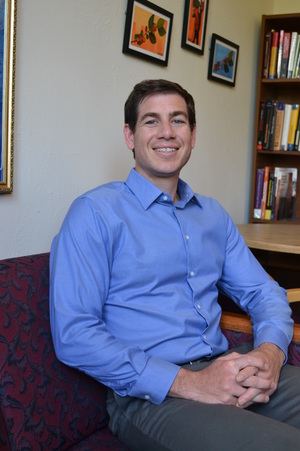About Me

As a clinician I have had the opportunity to work with a diverse range of individuals at a variety of settings that include three university counseling centers, a mental health center and a psychology clinic. Currently, I am a board certified, licensed clinical psychologist in Washington. I received a doctoral degree from George Mason University in clinical psychology. In addition to my private practice work, I am the Executive Director at American University's Counseling Center.
Prior to attaining my current position I completed an internship accredited by the American Psychological Association (APA) at Clemson University’s Counseling and Psychological Services (CAPS) and a postdoctoral fellowship at Boston College’s University Counseling Services.
Therapy Style:
As a clinician, I use integrative techniques, drawing primarily from the Interpersonal, Humanistic and Positive Psychology orientations, in order to effectively meet the needs of individuals I work with. I believe that the client-therapist relationship is an essential aspect of therapeutic change. Thus, while working with individuals, I work to create a safe, trusting environment that fosters the development of a strong therapeutic alliance. Once a positive therapeutic alliance has been established, I work with individuals to develop a personalized treatment plan that addresses their needs. Although the treatment plan is tailored to the individual it generally includes some Positive Psychology and Cognitive Behavioral Therapy (CBT) skills-based interventions.
Importance of Culture
In addition, I think it is important to note that I am sensitive to the impact that therapists’ and individuals’ cultural background, gender, sexuality, ethnicity and race have on treatment. As a result, when relevant, I integrate my training in areas related to social justice and cultural competency into a person’s treatment.
My Interest in Flourishing and Positive Psychology
I was first introduced to the topic of Positive Psychology as a graduate student. I quickly developed a passion for the topic and began researching the different components of Positive Psychology. My research interests culminated with my dissertation which focused on the role of forgiveness (an aspect of positive psychology) in romantic relationships. In addition to my research interest I also developed a strong clinical interest in positive psychology. I integrate multiple positive psychology interventions into my treatment with clients. I also have developed and facilitated a 14-week Flourishing Therapy Group on a number of occasions.
Prior to attaining my current position I completed an internship accredited by the American Psychological Association (APA) at Clemson University’s Counseling and Psychological Services (CAPS) and a postdoctoral fellowship at Boston College’s University Counseling Services.
Therapy Style:
As a clinician, I use integrative techniques, drawing primarily from the Interpersonal, Humanistic and Positive Psychology orientations, in order to effectively meet the needs of individuals I work with. I believe that the client-therapist relationship is an essential aspect of therapeutic change. Thus, while working with individuals, I work to create a safe, trusting environment that fosters the development of a strong therapeutic alliance. Once a positive therapeutic alliance has been established, I work with individuals to develop a personalized treatment plan that addresses their needs. Although the treatment plan is tailored to the individual it generally includes some Positive Psychology and Cognitive Behavioral Therapy (CBT) skills-based interventions.
Importance of Culture
In addition, I think it is important to note that I am sensitive to the impact that therapists’ and individuals’ cultural background, gender, sexuality, ethnicity and race have on treatment. As a result, when relevant, I integrate my training in areas related to social justice and cultural competency into a person’s treatment.
My Interest in Flourishing and Positive Psychology
I was first introduced to the topic of Positive Psychology as a graduate student. I quickly developed a passion for the topic and began researching the different components of Positive Psychology. My research interests culminated with my dissertation which focused on the role of forgiveness (an aspect of positive psychology) in romantic relationships. In addition to my research interest I also developed a strong clinical interest in positive psychology. I integrate multiple positive psychology interventions into my treatment with clients. I also have developed and facilitated a 14-week Flourishing Therapy Group on a number of occasions.